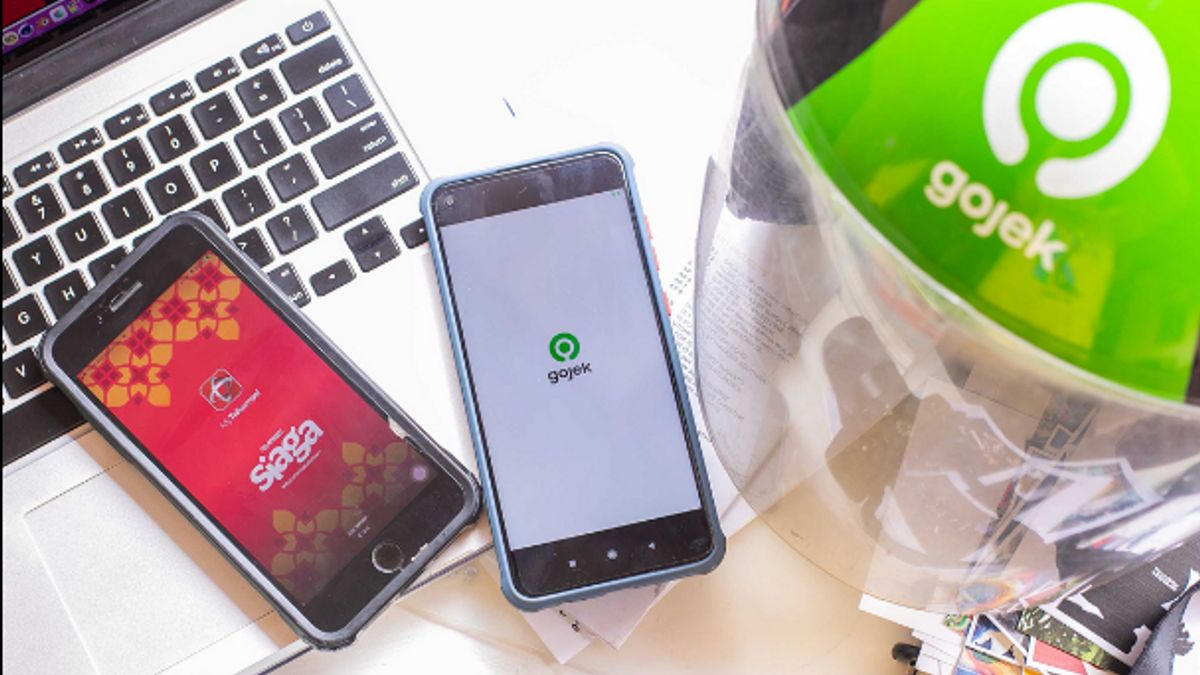JAKARTA - Within six months, Telkomsel invested Rp6.4 trillion in Gojek. First, in November 2020, it was Rp. 2.1 trillion and at the beginning of last month it was Rp. 4.3 trillion. This action has also drawn criticism. Because there is state money in the investment that must be accounted for.
This jumbo investment is called the company's effort to accelerate the progress of the digital and sustainable ecosystem in the country. Both Telkomsel and Gojek interpret this continued investment as a momentum to strengthen and deepen collaboration in providing comprehensive digital services and creating more innovative solutions.
As explained by President Director of Telkomsel Setyanto Hantoro, this investment is part of the company's strategy in strengthening its business in the digital industry. "As a digital telco company, we continue to carry out sustainable development that goes beyond connectivity capabilities, by continuing to develop the digital industry in Indonesia through the contribution of Telkomsel and Gojek excellence, both in the fields of expertise and innovation," said Setyanto.
Meanwhile, Gojek Group CEO Andre Soelistyo said that Telkomsel's funding would clearly optimize the resources and technological expertise of each company to innovate and expand the benefits of the digital economy for more consumers, driver partners, and MSME players throughout Indonesia. "We believe and are committed that this partnership will support the acceleration of Indonesia's digital transformation."

Director of the Center of Economic and Law Studies (CELIOS) Bhima Yudhistira said the investment funds disbursed by Telkomsel for Gojek could be considered state money. How not, so far the majority share of Telkomsel is owned by the State-Owned Enterprise (BUMN) PT Telkom by 65 percent. While 35 percent is held by Singapore Telecommunication (Singtel).
"State money, yes, because BUMN is also a state entity. Moreover, BUMN whose shares are majority controlled by the state," said Bhima when contacted by VOI.
As we know, one rupiah out of cash must be accounted for. Moreover, the amount of money is trillions of rupiah. There should be a clear and transparent mechanism for using it.
According to Bhima, this is the task of the commissioner of BUMN, in this case PT Telkom, to ensure that the company's investment does not fail. "That is precisely the task of the telkom commissioner to ensure that investments in companies like Gojek are profitable."
In addition, Bhima also said that there must be an effort from Commission VI of the House of Representatives (DPR) to encourage transparency regarding Telkom's investment in Gojek. "What is the reason, the profit and loss calculation, what the risk factors are, it must be clear."
"Because I see Telkom starting to become an investment company, not just a telco company. Where they have started investing in startups," said Bhima.
As is known, Gojek will soon merge with Tokopedia to form a company called GoTo. The hope is that after the merger, the company will go public. Then maybe after that, Telkom can return the capital.
"But this time the IPO was unsuccessful, the shares were not attractive to the public, it could be a loss for Telkom's investment," said Bhima. For this reason, according to him, the Supreme Audit Agency (BPK) should also take part in the audit. Then the question is, can the investment be called feasible?

According to Economist Bhima Yudhistira, knowing the profit or loss from Telkomsel's investment in Gojek depends on the purpose. "If the goal is to integrate the telco ecosystem with digital, then the money is small. But if you act as an investor to seek profit from the difference in stock prices, it means that there is no difference between a venture capital company, or an investment company."
Regarding the investment feasibility, Bhima said there were calculations. One of them is about physical assets that can be counted.
"If the physical assets are large, when the company goes bankrupt, the assets can be withdrawn by investors. But if the assets are digital, this is one of the high risks," said Bhima.
Bhima said, there is no guarantee that giant digital companies that have even merged can survive for a long time. There are many factors that can make a company worthless. "Many factors, such as consumer saturation, many new entrants, there are regulatory factors as well."
In terms of investment, Telkom also does not have a bitter experience. One of them was when Telkom through its subsidiary PT Pramindo Ikat Nusantara (PINS) invested in PT Tiphone Mobile Indonesia (TELE).
Instead of profit, PT Tiphone Mobile Indonesia has failed to pay hundreds of billions of rupiah of bonds to several obligors. As a result, the Indonesia Stock Exchange (IDX) stopped its activities on the stock exchange floor since early June 2020.
*Read other information about ECONOMY or read other interesting articles from Ramdan Febrian.
Other BERNASThe English, Chinese, Japanese, Arabic, and French versions are automatically generated by the AI. So there may still be inaccuracies in translating, please always see Indonesian as our main language. (system supported by DigitalSiber.id)











